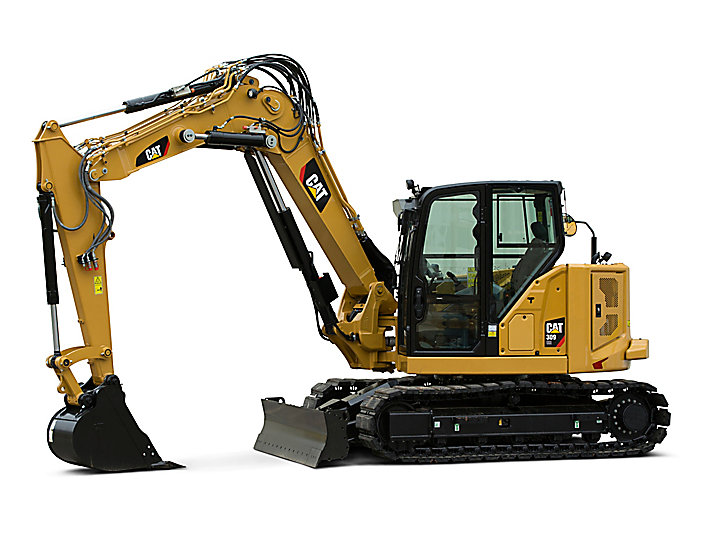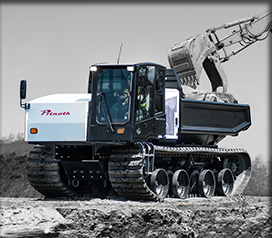Everything you should know about Superior Rentals reviews: real customer insights
A Comprehensive Guide to the Numerous Kinds of Oil Field Equipment and Pipeline Equipment Available
The oil and gas industry relies heavily on specific devices for effective removal and transportation. Various sorts of machinery, from piercing rigs to tank, play important functions in this complicated procedure. Each piece of equipment serves unique functions that add to general functional success. Recognizing these parts is important for anybody entailed in the sector. As the market progresses, so too do the innovations that support it. What improvements are on the perspective?

Drilling Rigs: The Foundation of Oil Exploration
Drilling rigs act as the vital equipment in the domain of oil expedition, enabling firms to access hydrocarbon books hidden deep below the Planet's surface area. These rigs come in numerous kinds, including land rigs, offshore rigs, and mobile systems, each designed to operate in details environments. Furnished with innovative technology, piercing rigs can pass through geological formations with accuracy, guaranteeing reliable resource removal. The architectural integrity and functional capacities of these rigs are important, as they should stand up to extreme problems and significant stress. The selection of an exploration gear influences the overall project expense and timeline, making it a crucial factor to consider for oil business looking for to maximize their exploration efforts and make best use of productivity in their operations.
Pumps: Vital for Fluid Activity
In the oil extraction process, the role of pumps is significant, helping with the motion of fluids throughout various stages of manufacturing. Pumps are essential for carrying petroleum, water, and other liquids from underground reservoirs to the surface area and after that with pipelines to refineries. They can be found in numerous kinds, consisting of centrifugal, positive variation, and completely submersible pumps, each offering specific objectives based upon the liquid attributes and functional needs. Centrifugal pumps are commonly used for their efficiency in high-flow applications, while favorable variation pumps stand out in handling thick liquids. The choice of pump influences general efficiency, functional safety and security, and maintenance prices. Appropriate selection and upkeep of pumps are important for optimizing manufacturing and reducing downtime in oil field procedures.
Shutoffs: Controlling Flow and Pressure

Valves play a vital role in handling the circulation and pressure of fluids within oil areas and pipes. Numerous sorts of shutoffs serve unique applications, each designed to meet certain functions basic for efficient procedure - Superior Rentals near me. Comprehending the features and uses these shutoffs is crucial for optimizing system efficiency and safety and security
Kinds of Valves
Essential components in oil field operations, valves play a vital function in managing the flow and pressure of fluids within pipes and tools. Numerous sorts of shutoffs are used to meet the varied needs of oil and gas manufacturing. Typical types include gateway valves, which give a straight-line circulation and minimal pressure decline; world shutoffs, known for their throttling capabilities; and round shutoffs, acknowledged for their quick on/off control. Additionally, check shutoffs stop heartburn, while butterfly valves use a light-weight remedy for managing circulation. Each shutoff kind is developed with particular materials and setups to hold up against the rough problems usually located in oil fields, guaranteeing integrity and performance in procedures. Comprehending these types is vital for efficient system management.
Valve Applications and Features
While different sorts of valves serve distinctive functions, their main applications revolve around controlling circulation and stress within oil and gas systems. Valves such as gateway, world, and sphere shutoffs regulate fluid activity, guaranteeing peak performance and safety and security. Entrance shutoffs are typically made use of for on/off control, offering marginal flow resistance. World shutoffs, on the other hand, deal exact flow regulation, making them suitable for throttling applications. Ball shutoffs are preferred for their fast procedure and tight sealing capacities. Furthermore, pressure alleviation shutoffs are essential for stopping system overpressure, safeguarding devices honesty. Overall, the suitable choice and application of shutoffs boost operational efficiency, making sure the reliable transport of oil and gas with pipes and processing centers.
Compressors: Enhancing Gas Transportation
Compressors play an important function in the reliable transport of natural gas, guaranteeing that it relocates efficiently through pipes over cross countries. These devices boost the stress of gas, permitting it to get rid of friction and altitude changes within the pipeline system. In addition, compressors assist in the balancing of supply and demand, fitting variations in consumption and production rates. Different kinds of compressors are employed in the industry, including centrifugal, reciprocating, and rotary screw compressors, each offering distinct benefits based upon the functional demands. Routine upkeep of these compressors is necessary to make the most of effectiveness and reduce downtime, ultimately adding to a dependable gas transportation network. Their vital function highlights the relevance of compressors in the total oil and gas facilities.
Storage Tanks: Safe and Reliable Liquid Monitoring
Reliable transportation of gas depends on numerous support group, one of which is the appropriate management of storage tanks. These storage tanks play a necessary role in securely consisting of fluids, ensuring that functional efficiency is kept while minimizing ecological risks. Created from long lasting materials, they are created to stand up to high pressures and destructive elements. Appropriately sized and strategically situated, storage containers facilitate the smooth more info circulation of gas and various other fluids, avoiding bottlenecks in supply chains. Normal upkeep and tracking are essential to detect leakages or architectural problems, advertising security and compliance with regulative criteria. Eventually, the effective management of storage space containers is crucial for the overall stability and integrity of the oil and gas industry's fluid handling systems.
Pipeline Solutions: Framework for Transport
Pipeline systems act as the backbone of the oil and gas sector, facilitating the effective transport of hydrocarbons over substantial ranges. These systems include different parts, including pipes, shutoffs, pumps, and compressors, all thoroughly made to assure smooth circulation. The materials utilized in pipeline building, commonly steel or high-density polyethylene, are picked for sturdiness and resistance to deterioration. Pipeline networks can span across land and water, connecting production websites to refineries and warehouse. In addition, progressed modern technology enables real-time monitoring of flow rates and pressure levels, boosting functional effectiveness. The critical positioning of these pipes lessens ecological effect while optimizing source availability, therefore playing an important duty in conference power needs internationally.
Safety And Security Equipment: Guaranteeing Employee and Environmental Management
The procedure of pipeline systems, while vital for energy transportation, likewise presents significant safety and security challenges for employees and the environment. Safety and security equipment plays a significant duty in minimizing these dangers. Personal safety equipment (PPE) such as helmets, gloves, and non-slip shoes safeguards employees from physical threats. Furthermore, gas discovery systems keep track of for leakages, guaranteeing that harmful compounds do not present a risk to employees or the surrounding community. Emergency situation shutdown systems are vital for quickly stopping operations during a situation, protecting against potential calamities. Spill containment products, including absorbents and obstacles, are basic for lessening environmental impact. On the whole, purchasing comprehensive safety devices is critical for preserving functional stability and protecting both employees and the atmosphere in the oil and gas field.

Regularly Asked Inquiries
Just how Do I Pick the Right Oil Field Equipment for My Task?
Picking the ideal oil area equipment entails evaluating task requirements, budget plan restrictions, and functional needs. Take into consideration factors such as equipment reliability, compatibility with existing systems, and the provider's track record to assure peak performance and security.
What Are the Upkeep Demands for Oil Field Equipment?
Upkeep demands for oil area devices consist of routine assessments, lubrication, and prompt repair services. Operators needs to also follow maker guidelines, display performance metrics, and warranty conformity with safety laws to improve longevity and performance.

Exactly How Can I Make Certain Compliance With Environmental Rules?
To assure conformity with environmental policies, companies have to carry out normal audits, implement best methods, buy training, keep correct documents, and remain upgraded on regulations (Superior Oilfield Rentals oilfield). Cooperation with ecological companies can likewise improve adherence to policies
What Is the Average Lifespan of Pipeline Equipment?
The ordinary life-span of pipeline devices usually ranges from 20 to 50 years, relying on variables such as material quality, environmental problems, and maintenance practices. Regular evaluations can significantly influence longevity and functional performance.
Just how Do I Securely Carry Oil Field Equipment to Remote Locations?
Carrying oil field equipment to remote areas requires careful preparation, consisting of course evaluation, protecting authorizations, making use of appropriate automobiles, and ensuring safety procedures are followed. Proper training and interaction amongst staffs are essential for successful transportation.